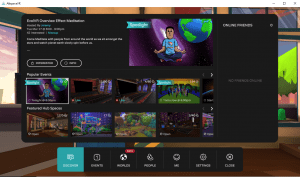Medicine & Mindfulness: How VR Training Is Helping Healthcare Through The Pandemic
Virtual Reality (VR) training tools are here to help, ensuring that healthcare professionals can be trained remotely, immersively, and more thoroughly than traditional methods for both front-line medicine and in specialist procedures.
use of wearable contact tracing sensors or VR training tools in the education sector and in an high-pressure medical context
Their VR platform uses personalized prediction software and “gamification and varied content formats to engage users and embed knowledge”, and has been used to “deliver typically labor-intensive training quickly and at scale”
“VR enables medics to immerse themselves in these infrequent scenarios, and can reduce skill fade by 52% and improve learning retention rates by up to 75% (compared to 10% for traditional methods),”
Simulated virtual learning can also ease the psychological burden of notoriously intensive medical training and place more emphasis on wellbeing.
++++++++++++++
more on mindfulness in this IMS blog
https://blog.stcloudstate.edu/ims?s=mindfulness

